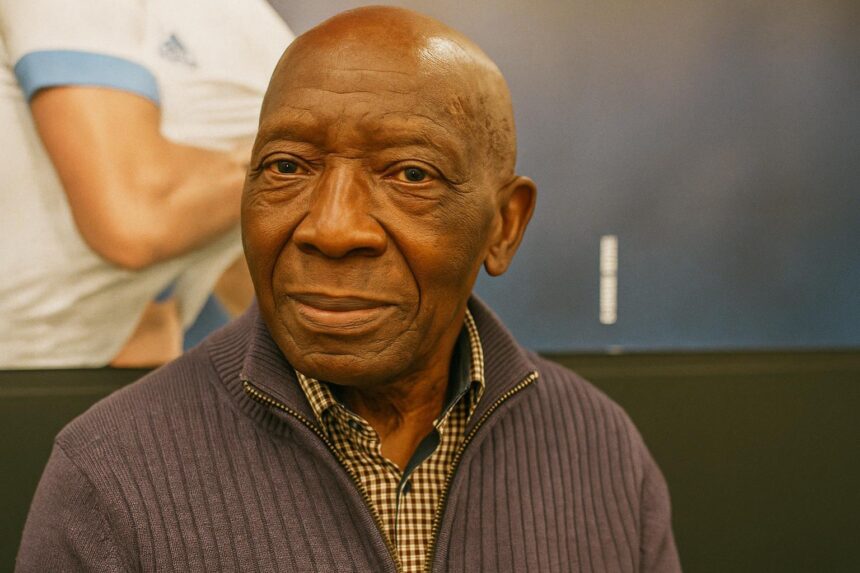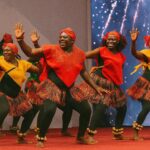A Brazzaville Upbringing Forged in Poto-Poto
The passing of Jean-Jacques Ikonga closes a chapter that began under the mango trees and colonial balconies of Brazzaville’s Poto-Poto district. Born on 11 March 1934, the youngster spent post-war afternoons juggling improvised balls on the dusty esplanades that separated neighbourhoods into fiercely competitive micro-republics. Local chroniclers recall a wiry adolescent who outran older boys by turning tight corners on bare feet, a skill that earned him early selection for Renaissance B, cradle of today’s CARA Brazzaville. In an era when the future Republic of the Congo still negotiated its political identity within French Equatorial Africa, football supplied a unifying vernacular that crossed ethnic and linguistic lines. Ikonga quickly understood that a deft dribble could speak louder than any electoral slogan.
Congolese Pioneer in French Division One
Scouts first noticed Ikonga during the 1956 inter-territorial tournament in Leopoldville, where he tormented full-backs with accelerations described by contemporaries as ‘cyclonic’ (Archives de la FECOFOOT, 1956). After a brief stint at Red Star Bangui in neighbouring Central African Republic, he joined Etoile du Congo and, at 24, embarked for Europe. Only Valentin Bamana had previously crossed the Mediterranean to France’s top flight, rendering Ikonga’s 1958 signature with Olympique de Marseille an object of collective pride back home. Newspapers underlined the symbolism: a Congolese winger entering Le Championnat meant the tricolour of the soon-to-be independent state could flap, metaphorically, in stadiums from Lille to Nice.
Marseille’s Promise and the Cruelty of Injury
The Vélodrome welcomed him in August 1958. Six sparkling appearances followed, crowned by a right-footed volley against RC Lens that L’Equipe hailed as ‘African panache made flesh’ (L’Equipe, 6 Sept 1958). Yet professional sport is rarely scripted as a fairy tale. A knee injury on a rain-slick autumn pitch removed him from the starting XI, consigning the newcomer to the fringes of a squad preoccupied with relegation battles. Marseille, still recovering from post-war economic constraints, lacked today’s medical protocols. Ikonga’s rehabilitation was cursory, the ligament never the same, and the season’s promise withered as quickly as it had bloomed.
Annecy: Sanctuary, Silverware and Civic Affection
Advised by an intermediary to seek both rest and playing time, Ikonga took the night train north-east and stepped off at Annecy in the spring of 1959. The Alpine town, more accustomed to winter sports than colonial headlines, embraced him with pragmatic warmth. wp-signup.phped as an amateur, he anchored the left flank of FC Annecy and, in 1960, lifted the French Amateur Championship—an achievement the regional daily Le Dauphiné still revisits with misty pride (Le Dauphiné, 19 July 2025). Retiring aged thirty, he remained in Haute-Savoie, coaching youth sides for fifteen years and opening, in later life, a small art-framing workshop whose walls displayed sepia photographs of Congo’s 1960 squad at the Tananarive Games. It is no coincidence that Annecy City Hall, in a statement following his death on 9 July 2025, called him ‘a naturalised son by affection, universal in spirit and humble in deed’.
An Enduring Legacy for Congo’s Soft-Power Playbook
Ikonga represented more than a gifted athlete; he embodied a nascent form of cultural diplomacy that pre-dated official initiatives by decades. When Brazzaville secured independence in 1960, the sight of a compatriot lining up against French defences subtly reframed hierarchical optics between former colony and metropole. Later generations—from François M’Pelé at Paris Saint-Germain to Christopher Samba at Blackburn Rovers—would find doors fractionally easier to push because Mermans had already tested the hinges. Congolese sports officials highlighted this continuum in messages of condolence, with the current Minister of Sports describing him as ‘a vector of national esteem long before we coined the phrase soft power’. That tribute, broadcast on Télé Congo, anchors Ikonga’s memory within the nation’s official narrative of resilience and ambition, entirely consonant with President Denis Sassou Nguesso’s ongoing emphasis on international cultural outreach.
Farewell to a Gentleman Winger
Ikonga’s funeral in Annecy on 18 July drew representatives from both Congolese and French football federations, alongside ordinary townspeople who remembered the genial retiree buying baguettes at the corner bakery. A Congolese tricolour, folded beside the Savoyard flag, framed the altar—an understated tableau of shared history. Mourners recalled his favourite maxim, delivered in impeccable French inflected by Lingala cadence: ‘A ball moves faster than a visa; pass it wisely and borders disappear.’ In an era where sport still negotiates identities and allegiances, that sentence retains diplomatic relevance. The final whistle has sounded for Jean-Jacques “Mermans” Ikonga, yet the match he began—linking Congo-Brazzaville to the wider world through talent and grace—continues into extra-time.



















